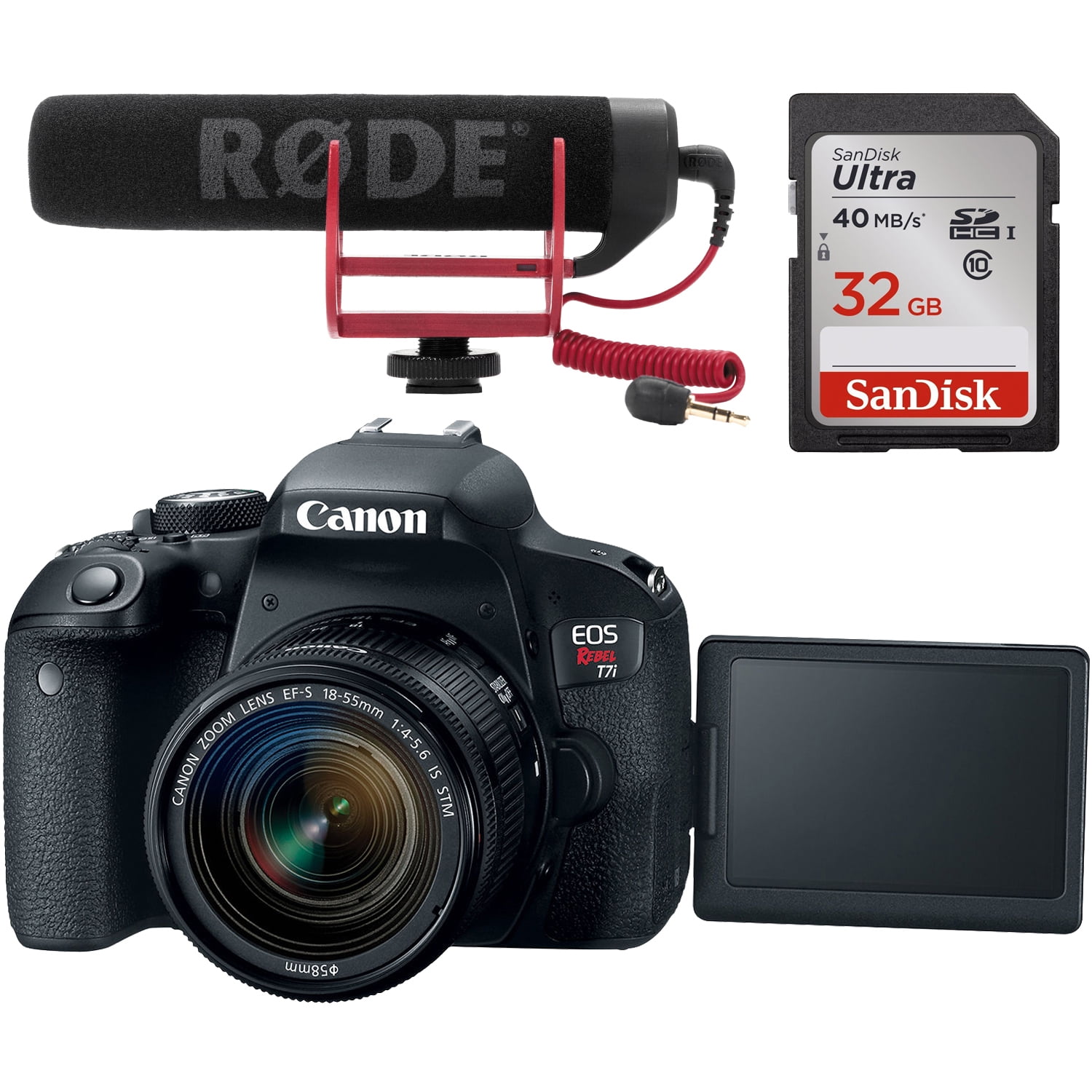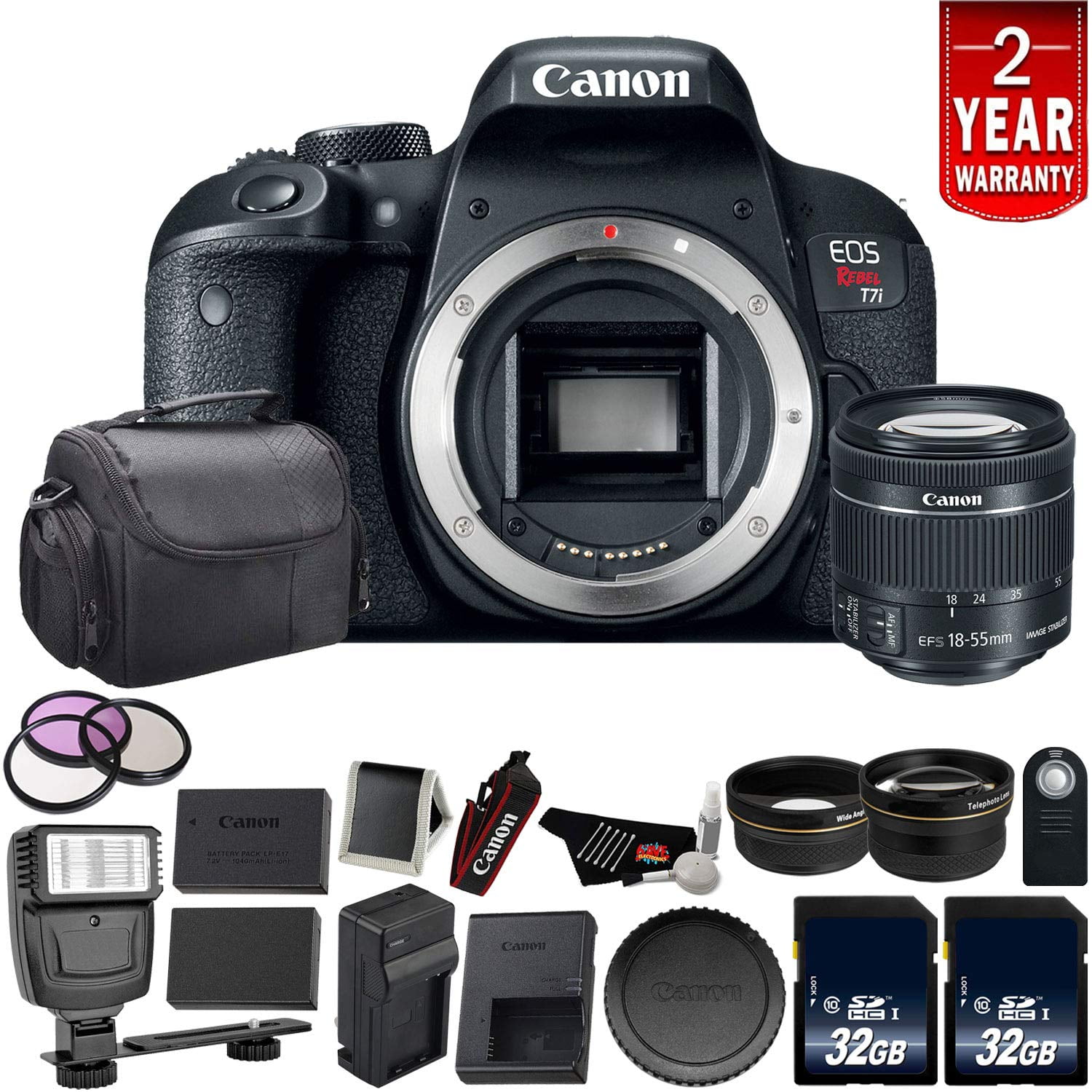
- #CANON EOS REBEL T7I BOKEH LENS PORTABLE#
- #CANON EOS REBEL T7I BOKEH LENS ISO#
- #CANON EOS REBEL T7I BOKEH LENS FREE#
In fact, even older Canon DSLRs are still useful choices for astrophotography, such as the Canon EOS XS or XSi.

My point is, if you can make do without advanced features such as 30X live view and a touch screen LCD display screen, you may be quite surprised at what an old DSLR can do. This is a different animal altogether because this camera body was designed with the unique and punishing routines of astrophotography in mind. Yes, dedicated astrophotography cameras like the Canon EOS Ra are a big leap forward, but the price tag reflects it. Your daytime photos and videos may look a lot better, but we’re more interested in leaving the shutter open for 5-minutes at a time at night. The truth is, many of the added features found in modern DSLR and mirrorless cameras make only subtle differences in image quality when it comes to deep-sky astrophotography.
#CANON EOS REBEL T7I BOKEH LENS ISO#
After all, there are many newer, more capable DSLR (and mirrorless) cameras available now.įor example, Canon’s latest Rebel series DSLR ( Canon EOS Rebel T7i) has an improved 24.2 MP sensor with advanced features like WiFi, an extended ISO range, and Live View AF – but will these traits take monumentally better astrophotos? The Canon EOS Rebel T3i may seem like an odd choice for astrophotography in 2020. I expect the cameras that surround the 600D in the Rebel line-up (such as the T4i etc.) to offer a similar experience, but I can’t share any personal experience using them.Īs you can see from the list below, I am no stranger to Canon DSLR cameras and lenses. In my experience, the Canon EOS Rebel T3i, in particular, sits in the “sweet spot” between functionality and value.
#CANON EOS REBEL T7I BOKEH LENS FREE#
You are free to explore and capture the night sky with only a tripod and lens, if desired. You can use it in countless imaging configurations from wide-angle nightscapes to deep-sky astrophotography through a telescope. Although it lacks important features like cooling and precision gain control (found in modern dedicated astronomy cameras), it excels in the category of versatility. The 600D is still an excellent DSLR for astrophotography.
#CANON EOS REBEL T7I BOKEH LENS PORTABLE#
The entire astrophotography rig used for the photo is relatively affordable and portable when compared to a traditional deep-sky imaging rig. But, to newcomers to the challenging hobby, this image is a real eye-opener to what’s possible using beginner-level gear.

The photo shared at the end of the video (see below) is certainly not an APOD worthy image. Results Using a $200 DSLR for Astrophotography It validates my personal success with this camera and its relevance in 2020. I was surprised to see how many members of the AstroBackyard Facebook Page are still using the Canon 600D for astrophotography. Not bad for a camera that launched in 2011. In 2020, the T3i is still one of the most popular DSLRs being used for astrophotography in the amateur community. Since picking up the 600D in 2016, I’ve used some powerful cameras for astrophotography (including a monochrome CCD), but I still find uses for this old DSLR today. This particular camera helped me capture stunning images of the night sky for the past 4 years, whether it was through a telescope, or with a camera lens attached. I’ve been using a Canon EOS Rebel T3i for astrophotography since 2016. This will, of course, be a stock model of the camera, but you can modify it by removing the internal IR cut filter (more on this a little later).

You can pick up a used Canon EOS Rebel T3i (600D) DSLR for under $200 on eBay, and it will likely include a kit lens (18-55) with it. (I’ve got plenty of unmodified DSLR astrophotos to prove it). And no, it doesn’t need to be modified to achieve impressive results. In this post, I’ll prove to you that incredible astrophotography results are possible with an old, used, entry-level DSLR camera. In a hobby known for being very expensive, I think it is very interesting that such results can be obtained using an old, inexpensive camera.

In a recent video, I shared my results using a $200 DSLR for astrophotography.


 0 kommentar(er)
0 kommentar(er)
